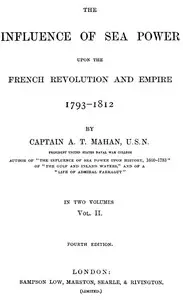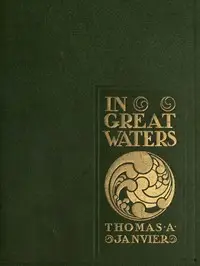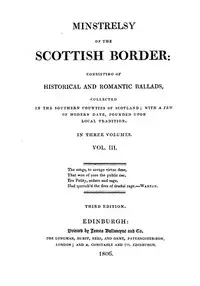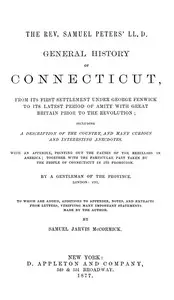"From Sail to Steam, Recollections of Naval Life" by A. T. Mahan is a historical account written in the early 20th century. The book presents the author's reflections and observations from his time in the U.S. Navy as it transitioned from sail power to steam power, particularly focusing on his experiences before and during the Civil War. Readers can expect a detailed exploration of naval life, conditions, and the evolution of military sea power during this transformative period. At the start of the book, Mahan introduces himself and provides an insightful background into his family heritage and early upbringing that shaped his perspective on naval affairs. He shares anecdotes from his childhood and his early influences, including his father's esteemed position as a professor at the U.S. Military Academy. The opening portion sets the stage for his subsequent experiences in the navy, particularly highlighting the prevailing attitudes towards naval officers and seamen prior to the Civil War. Mahan notes the significant changes in naval technology and public perception regarding the navy’s role in national security, laying the groundwork for the reflections and narratives that follow. (This is an automatically generated summary.)

From Sail to Steam, Recollections of Naval Life
By A. T. (Alfred Thayer) Mahan
"From Sail to Steam, Recollections of Naval Life" by A. T. Mahan is a historical account written in the early 20th century. The book presents the auth...
Alfred Thayer Mahan was a United States naval officer and historian, whom John Keegan called "the most important American strategist of the nineteenth century." His 1890 book The Influence of Sea Power Upon History, 1660–1783 won immediate recognition, especially in Europe, and with the publication of its 1892 successor, The Influence of Sea Power Upon the French Revolution and Empire, 1793–1812, he affirmed his status as a globally-known and regarded military strategist, historian, and theorist. Mahan's works encouraged the development of large capital ships — eventually leading to dreadnought battleships — as he was an advocate of the 'decisive battle' and of naval blockades. Critics, however, charged him with failing to adequately explain the rise of largely land-based empires, such as the German or Ottoman Empires, though Mahan did accurately predict both empires' defeats in World War I. Mahan directly influenced the dominant interwar period and World War II-era Japanese naval doctrine of the "decisive battle doctrine" , and he became a "household name" in Germany. He also promoted American control over Hawaii though he was "lukewarm" in regards to American imperialism in general. Four U.S. Navy ships have borne his name, as well as various buildings and roads; and his works are still read, discussed, and debated in military, historical, and scholarly circles.


















